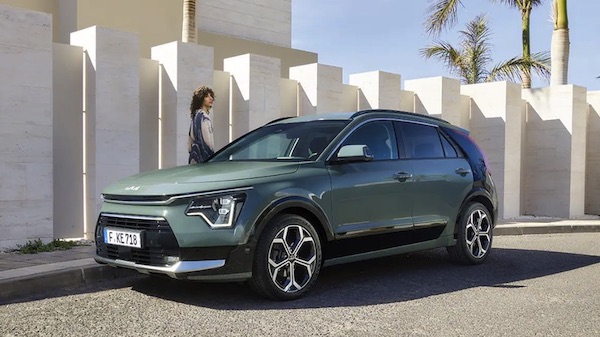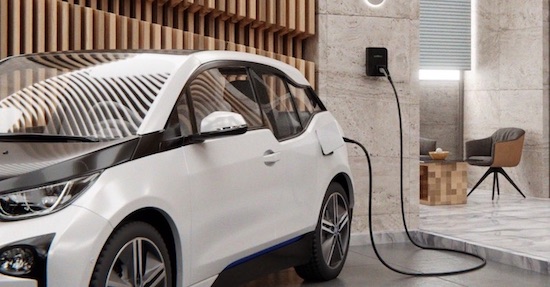Overview
The Hyundai Motor Company, usually referred to simply as Hyundai, is a leading South Korean automotive manufacturer headquartered in Seoul. The company was founded in 1967, with its first model, the Cortina (in collaboration with Ford Motor Company), launched in 1968. The Cortina was assembled in the Ulsan plant in South Korea. Hyundai has come a long way since then, and currently owns a 33.88% stake in Kia Corporation, and also wholly owns the luxury automotive brand, Genesis, among others.
Hyundai has an annual production capacity of over 1.6 million units, making the automotive manufacturer the third-largest in terms of production behind the Japanese automotive manufacturer, Toyota and the German automotive group, Volkswagen. Hyundai has production facilities across a number of global locations. Some of these include: North America, India, Russia, Turkey, China and the Czech republic. Hyundai vehicles are sold in nearly 200 countries globally.
Hyundai commenced developing alternative fuel vehicles in 1988. The first pure electric car was developed by the company in 1991 (Sonata EV). The automotive manufacturer commenced producing hybrid electric vehicles in 2008. The company has also been involved with hydrogen powered vehicles. In 2018, Hyundai launched the Nexo, a hydrogen powered crossover SUV. The company also launched the first the Xcient Fuel Cell, the world’s first production hydrogen fuel cell truck.
In 2022, the company announced a new production facility in South Korea, with a sole focus on the manufacturer of electric vehicles (EVs). The facility is expected to commence operations in 2025. The company currently has the following battery-electric vehicles (BEVs) and plug-in hybrid electric vehicles (PHEVs):
- Hyundai IONIQ Electric
- Hyundai Kona Electric
- Hyundai IONIQ Plug-In Hybrid
- Hyundai Santa Fe Plug-In Hybrid
- Hyundai Tucson Plug-In Hybrid
- All-electric Hyundai IONIQ 5
- All-electric Hyundai IONIQ 6
- All-electric Hyundai INSTER
Electric Cars: The Basics
For those of you new to zero-emission electric driving, we recommend a read of the following articles:
Sign up to the e-zoomed Electric Living newsletter
The Hyundai Kona Electric SUV
The pure electric Hyundai Kona Electric EV was launched in South Korea in 2018. The Kona has also been available as an internal combustion engine (ICE) variant since 2017. The vehicle is named after the western district of the island of Hawaii.
The Kona e-SUV is the second pure electric car from the South Korean manufacturer. The first was the all-electric IONIQ EV. The upgraded New Kona Electric SUV EV is a practical and affordable electric vehicle (EV), appropriate for families keen to migrate to zero-emission electric driving, but at prices that are affordable.
The e-SUV is practical and versatile with an excellent zero-emission range. The KONA SUV EV is available in two EV battery sizes (39.2 kWh and 64 kWh), with a WLTP range up to 300 miles for the larger lithium-ion EV battery. The 39.2 kWh EV battery offers a zero-emission range up to 189 miles (WLTP).
Of course, the real-world electric range will be lower, impacted by a number of factors, to include: driving profile, speed, use of regenerative braking, onboard services used, passenger load, tyre size etc. For the 39.2 kWh option, expect a real-world e-range closer to 160 miles and for the 64 kWh, a 260 miles electric range will be more realistic.
In any case, both options offer ample range for most needs, to include longer motorway journeys. Also do keep in mind that the average distance travelled by the majority of motorists in a day is a mere 30 miles. The compact crossover electric SUV is more than appropriate for most family requirements, to include, school runs, family outings, weekend trips, grocery shopping and a lot more!
The electric vehicle (EV) also has a 10.5 kW AC (3-phase) onboard charger as standard and is capable of DC charging up to 100 kW. Most homes in the UK are powered by a single-phase (7.4 kW) power supply. The 39.2 kWh EV battery can be fully charged via a single-phase EV charger in 6 hours and the 64 kWh EV battery will take 9 hours and 15 minutes.
For those with access to three-phase EV charging at home or at a public charging station, the 39.2 kWh battery can be fully charged in 4 hours and 20 minutes, while the 64 kWh battery can be fully charged in 6 hours and 50 minutes. DC charging will certainly be much faster and the 39.2 kWh can be charged up to 80% in 64 minutes (50 kW DC), while the 64 kWh can achieve 80% charge in 47 minutes (100 kW DC).
The Kona electric family car is available only in front-wheel drive (FWD). The pure electric Kona can achieve 0-62 mph in 9.9 seconds for the smaller EV battery. The 64 kWh variant can achieve 0-62 mph in 7.9 seconds. The top speed of the EV is 104 mph.
Standard features in the electric vehicle include: regenerative brake shift paddles, smart key – keyless entry, rear camera and guidance system, 10.25″ screen navigation, driver’s supervision instrument cluster with TFT display (10.25″), forward collision warning (FCW), lane follow assist (LFA), lane keep assist (LKA) and more. In terms of practicality, the boot space (332 L) is not as large compared to rivals. The interior cabin has adequate space but not spacious.
Electric driving helps lower the cost of motoring. Depending on the cost of charging an electric car, the cost per mile will vary between 5 pence and 10 pence. We encourage charging the electric car at home, overnight, when the electricity rates are lower.
The EV is suitable for both families and company-car drivers. Company-car drivers can take advantage of the lower Benefit-in-Kind (BiK) tax rate for electric cars. Bottom-line, electric driving is good for the environment and the wallet.
You can lease electric vehicles (EVs) via e-zoomed at very competitive prices!
| PROS | CONS |
|---|---|
| An affordable compact family electric SUV | Not available as an all-wheel drive |
| Good EV range (up to 300 miles) | Boot is smaller than rivals |
| Up to 100 kW DC and three-phase onboard charger as standard | Heat pump does not come as standard |
The Hyundai Kona Electric SUV (credit: Hyundai)
| At A Glance | |
|---|---|
| EV Type: | Battery-Electric Vehicle (BEV) |
| Body Type: | SUV (Compact Crossover) |
| Plug-In Car Grant (PiCG): | Not Available |
| Engine: | Electric |
| Available In UK: | Yes |
| Variants (3 Options) |
|---|
| Hyundai Kona SE Connect (from £31,325) |
| Hyundai Kona Premium (from £32,675) |
| Hyundai Kona Ultimate (from £37,900) |
| EV Battery & Emissions | |
|---|---|
| EV Battery Type: | Lithium-ion |
| EV Battery Capacity: | Available in two battery sizes: 39.2 kWh/ 64 kWh |
| Charging: | Up to 100 kW DC Rapid Charging (10%-80%: 47 mins). Onboard charger: 10.5 kW AC |
| Charge Port: | Type 2 |
| EV Cable Type: | Type 2 |
| Tailpipe Emissions: | 0g (CO2/km) |
| EV Battery Warranty: | 8 years or 100,000 miles |
| Average Cost Of Residential Charging | |
|---|---|
| Battery net capacity : 16.7 kWh | £2.40 |
| Battery net capacity : 30.0 kWh | £4.32 |
| Battery net capacity : 39.2 kWh | £5.64 |
| Battery net capacity : 45.0 kWh | £6.48 |
| Battery net capacity : 50.0 kWh | £7.20 |
| Battery net capacity : 64.0 kWh | £9.22 |
| Battery net capacity : 71.0 kWh | £10.22 |
| Battery net capacity : 77.0 kWh | £11.09 |
| Battery net capacity : 90.0 kWh | £12.96 |
| Battery net capacity : 100.0 kWh | £14.40 |
- Note 1: The average cost of residential electricity in the UK varies depending on the region, supplier and type of energy used. An average for the UK is 14.40 p/kWh.
- Note 2: Not all EV manufactures make available the data on net EV battery capacity, and in a number of instances the EV battery capacity advertised, does not state if it is gross or net capacity. In general, usable EV battery capacity is between 85% to 95% of the gross available capacity.
| Charging Times (Overview) | |
|---|---|
| Slow charging AC (3 kW – 3.6 kW): | 6 – 12 hours (dependent on size of EV battery & SOC) |
| Fast charging AC (7 kW – 22 kW): | 3 – 8 hours (dependent on size of EV battery & SoC) |
| Rapid charging AC (43 kW): | 0-80%: 20 mins to 60 mins (dependent on size of EV battery & SoC) |
| Rapid charging DC (50 kW+): | 0-80%: 20 mins to 60 mins (dependent on size of EV battery & SoC) |
| Ultra rapid charging DC (150 kW+): | 0-80% : 20 mins to 40 mins (dependent on size of EV battery & SoC) |
| Tesla Supercharger (120 kW – 250 kW): | 0-80%: up to 25 mins (dependent on size of EV battery & SoC) |
- Note 1: SoC: state of charge
| Dimensions | |
|---|---|
| Height (mm): | 1570 |
| Width (mm): | 1800 |
| Length (mm): | 4205 |
| Wheelbase (mm): | 2600 |
| Turning Circle (m): | 10.60 |
| Boot Space (L): | 332 |
| KONA Electric (39.2 kWh) | |
|---|---|
| EV Battery Capacity: | 39.2 kWh |
| Pure Electric Range (WLTP): | 189 miles |
| Electric Energy Consumption (kWh/100km): | 14.3 |
| Charging: | 50 kW DC Rapid Charging (10%-80%: 64 mins). Onboard charger: 10.5 kW AC (0%-100%: 4 hrs and 20 mins) |
| Top Speed: | 96 mph |
| 0-62 mph: | 9.9 seconds |
| Drive: | Front-wheel drive (FWD) |
| Electric Motor (kW): | 136 |
| Max Power (PS): | 100 |
| Torque (Nm): | 395 |
| Transmission: | Automatic |
| Seats: | 5 |
| Doors: | 5 |
| Kerb Weight (kg): | 1,535 – 1,593 |
| Colours: | 10 |
| NCAP Safety Rating: | N/A |
| KONA Electric (64 kWh) | |
|---|---|
| EV Battery Capacity: | 64 kWh |
| Pure Electric Range (WLTP): | 300 miles |
| Electric Energy Consumption (kWh/100km): | 14.7 |
| Charging: | 100 kW DC Rapid Charging (10%-80%: 47 mins). Onboard charger: 10.5 kW AC (0%-100%: 6 hrs and 50 mins) |
| Top Speed: | 104 mph |
| 0-62 mph: | 7.9 seconds |
| Drive: | Front-wheel drive (FWD) |
| Electric Motor (kW): | 204 |
| Max Power (PS): | 150 |
| Torque (Nm): | 395 |
| Transmission: | Automatic |
| Seats: | 5 |
| Doors: | 5 |
| Kerb Weight (kg): | 1,658 – 1,743 |
| Colours: | 10 |
| NCAP Safety Rating: | N/A |
While e-zoomed uses reasonable efforts to provide accurate and up-to-date information, some of the information provided is gathered from third parties and has not been independently verified by e-zoomed. While the information from the third party sources is believed to be reliable, no warranty, express or implied, is made by e-zoomed regarding the accuracy, adequacy, completeness, legality, reliability or usefulness of any information. This disclaimer applies to both isolated and aggregate uses of this information.






































